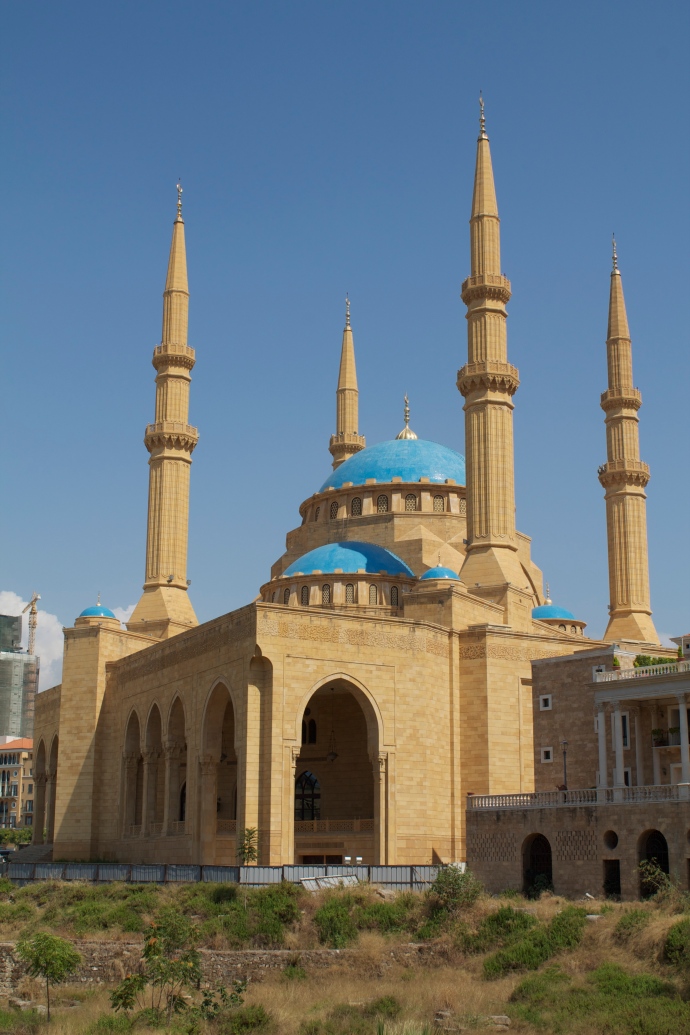Two barbed wire fences run parallel to each other for miles, guarded by UNICEF troops who are stationed there 24 hours a day. The contrast is striking. On one side you can olive trees, homes, small shops selling candy. You see posters of Hassan Nasrallah and of martyrs celebrated for their heroism and for their death. On the other side there is an expanse of fruit trees – pomegranates, cherries, peaches – in perfect rows coming as close to the fence as possible. There are no homes or buildings close to the fence, apart from the watch stations every few kilometers. The Lebanon-Israel border is somewhat of a surreal area.
Today we spent much of our day getting into South Lebanon so that we could visit this area and witness the situation at the border of the two states that have been at constant state of war. I don’t know what I was imagining, but what I saw today was certainly not it. On one hand, I was surprised at how organized the area was. The fences were impeccable. Both sides have built these fences to demarcate the border after the Israeli occupation of Lebanon. In between the two fences is a streak of land about the width of a single lane road- an area that I imagine is “no mans land” under the supervision of UNICEF. On the other hand it is striking to witness the amount of patrol along the border. On the Lebanese side, there is a constant flow of soldiers and UNICEF personnel. On the Israel side, there are stations all along the border where Israeli troops can supervise. I never imagined a border being so well guarded.
What was also interesting is the 4 flags that waved along those fences: the Lebanese, Hezbollah, Iranian, and Palestinian flags. Hezbollah predominantly controls the south, and is in large funded by the Iranian government. The most interesting flag was the Palestinian.
The previous night we spoke with Bill Corcoran, the President of ANERA (American Near East Refugee Aid). ANERA is the only organization that was allowed to bring supplies into Gaza and the West Bank after the 2006 war. They are trusted and respected on both sides of the spectrum. Mr. Corcoran spoke to us about the hundreds of thousands of Palestinian refugees in Lebanon. He told us that by and large, the Lebanese do not like the Palestinian refugees. The March 14 and the March 8 coalitions would prefer that these people were not in their countries. However, the one group who does support the Palestinian cause in the country is Hezbollah. The way Mr. Corcoran put it is by saying that “the enemy of my enemy is my friend.” Since Palestine dislikes Israel as much as Hezbollah, there is a de facto relationship that arises there. This was very evident in the waving flags of “Hezbollah land.”
I wanted to share this bit of information because I thought it was really intriguing. Although it does not surprise me in retrospect, it was quite a shock to see this area initially.



